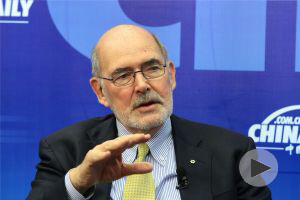Paid to be a guinea pig
Updated: 2013-10-31 08:04
By Yang Wanli (China Daily)
|
||||||||
Risks from participating in medical trials are greater than many people imagine, reports Yang Wanli.
Dressed in a well-tailored black suit, 26-year-old Ren Tianyue walked along a street in Beijing's financial district. His neat, freshly ironed shirt and classy black-framed glasses gave him the air of a white-collar worker at a big-money enterprise.
Seeing Ren like this, few people would imagine that he used to earn a living by being a guinea pig in medical trials, testing a variety of medicines from pills to treat nasal inflammation to insulin injections. The payment per trial ranged from a few hundred yuan to 8,000 yuan ($1,300), depending on the drugs involved.
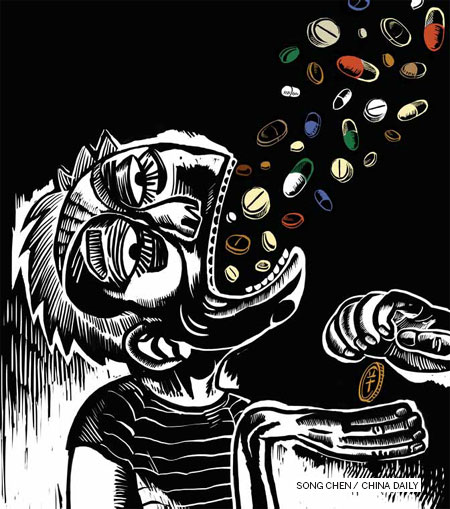 |
Ren is one of about 500,000 people in China who participate in medical trials every year. He usually took part in phase 1 trials, which can help scientists determine the best way to administer new treatments and the safe maximum dosage.
China's pharmaceutical market was worth 93 billion yuan by the end of 2012, according to a report released by the Chinese Academy of Social Sciences in February. It's estimated the market will grow by 12 percent every year over the next decade.
The Beijing Normal University math graduate said he was inspired to participate in the trials by a TV program he watched as a high school student.
"I saw a documentary on the Discovery Channel in which a participant forced himself to take a handful of pills for a medical trial. It piqued my curiosity," he said.
He first attempt to become involved, at age 20, ended in failure when he was rejected because a standard pre-trial urine test indicated nicotine in his bloodstream.
In 2011, Ren's application was successful and he joined a trial of a drug to treat nasitis (nasal inflammation). He freely admits that he was motivated as much by the money on offer as altruism, because at the time he was earning around 2,000 yuan a month and the lure of 2,000 yuan for just one week's "work" was too great to resist.
"I believe most of the products are made using similar, possibly even the same, formulas as those used in other countries for years, so they are safe," he said. "Sick people take medicine to treat diseases, and we test the medicines for them - it's a commitment. Since it's inevitable that everyone will take some form of medicine during their lifetime, it doesn't matter when you take it."
However, the risks inherent in participating in medical trials are real and greater than many people imagine, because of the almost inevitable side effects. Many are temporary and disappear when the participant stops taking the medicine, but others can be long-term or permanent. Also, while some side effects appear during the testing process, others may not show until the treatment is over. Moreover, by their very nature the treatments are new, so the doctors don't always know what the side effects will be.
The dose given to each subject varies; some participants are given a high dose, some are given a small amount and others receive a placebo, a treatment that contains no trace of the drug being tested. Who gets what is decided randomly, but the risks are always greater for those chosen to receive a high dose because the reaction varies from person to person.
Despite being fully aware of the potential risks, thousands of men and women, blinded by the relatively large sums on offer, are happy to take every possible opportunity to "make a living" through the trials.
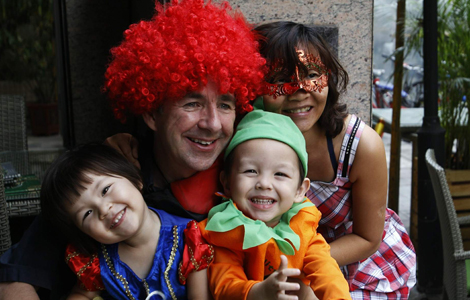
 Color-blind love
Color-blind love
 Lenovo's new secret weapon: Hollywood star
Lenovo's new secret weapon: Hollywood star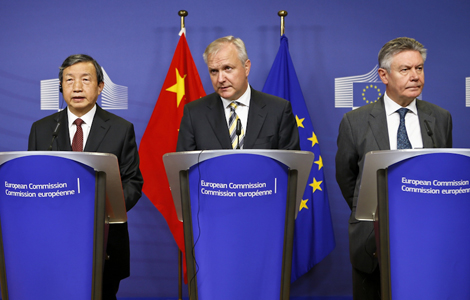
 Brussels visit heralds closer trade ties for EU and China
Brussels visit heralds closer trade ties for EU and China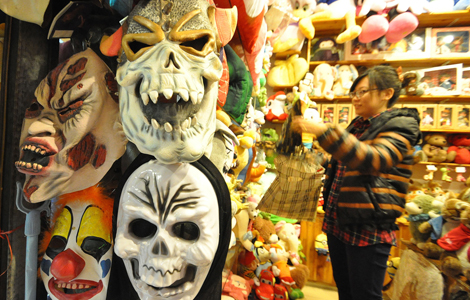
 Halloween gaining popularity but still sees cultural differences
Halloween gaining popularity but still sees cultural differences
 US embassy accused as 'spy hub'
US embassy accused as 'spy hub'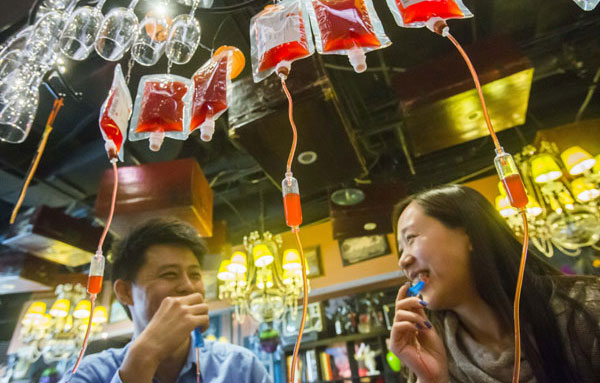
 Halloween beverage offers vampire experience
Halloween beverage offers vampire experience
 Lenovo launches new Yoga tablet
Lenovo launches new Yoga tablet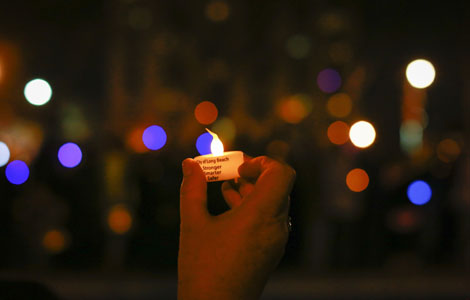
 Sandy anniversary
Sandy anniversary
Most Viewed
Editor's Picks

|

|

|

|

|

|
Today's Top News
US business council wants market-barriers reduced
Benefit held for NYC official’s ex-campaign treasurer
HIV epidemic needs education, not bath house bans
Survey examines education gap
Chinese cities victim of US spying scheme
Legislation to help reduce pollution
Govt pledges more housing
Halloween gains popularity in China
US Weekly

|

|
